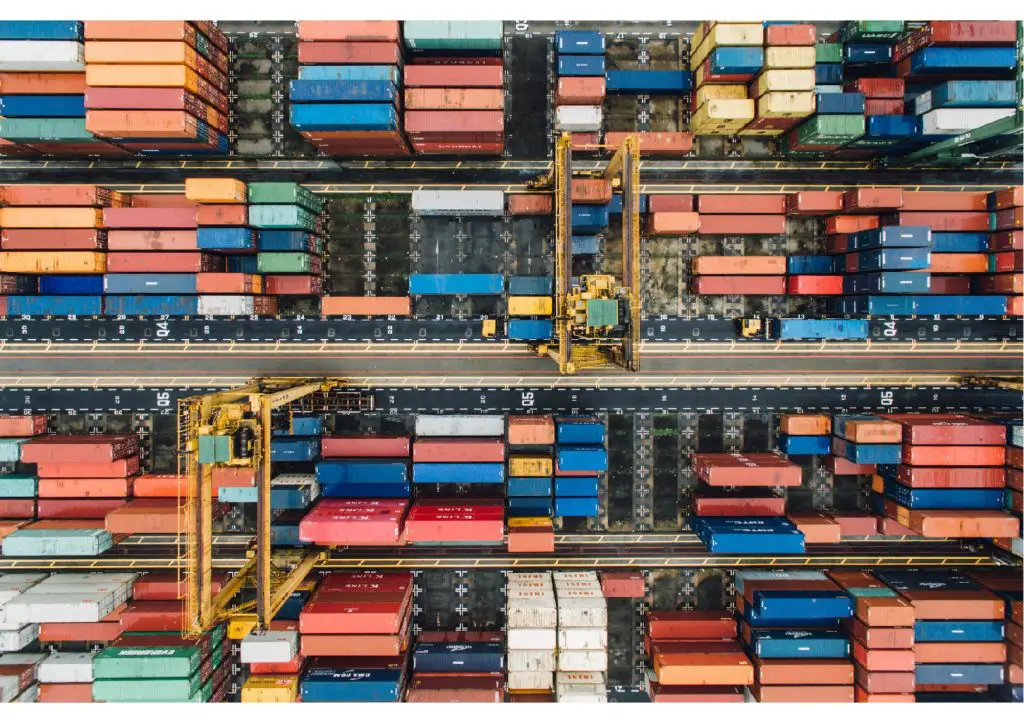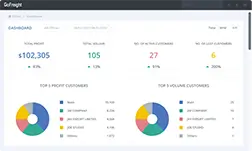Here’s Why CRM Is So Important in Logistics
While supply chain management (SCM) and customer relationship management (CRM) may not seem to have all that much in common on the surface, one can’t actually function effectively without the other – at least from the perspective of a freight forwarder. In order to grow a more successful freight forwarding operation, it’s crucial to integrate tech-enabled strategies that maximize the efficiency of both functions.
So, what exactly is CRM? To put it simply, CRM logistics is the use of technology to acquire, enhance, and retain customer relationships. It helps companies with a wide range of activities from creating profiles on prospects, to updating customer lists, to scheduling appointments, to actively managing communication with clients.
Why Does CRM Matter to the Forwarding Function?

When implementing software that can better manage your customer interactions, it enables you to store all of your information — including direct front-office communication, indirect back-office facilitation, and relevant networking contacts — in one centralized location. Not only does this simplify your customer service, but it also creates value to your company by driving new revenue in the long run.
Satisfied customers aren’t going anywhere. Businesses that focus on building reliable relationships with their top clientele by providing consistent, high-quality service over time secure an important competitive advantage over their competition. Since the transportation industry is especially competitive, any chance you get to keep your target market from looking at your competitors makes a difference. It’s also critical to avoid wasting your time and resources on the wrong prospects – another benefit of an optimized CRM.
Common CRM Integration Obstacles

Robust CRM logistics solutions ultimately allow freight forwarders and other logistics professionals to understand and address the expectations of their customers on a higher-level than other forwarders. After all, maintaining customer loyalty is a surefire way to sustain profitable growth, and a must in this industry. If you’re moving hundreds or even thousands of shipments every day, it can be easy to overlook the hard-reality that your customers have other options.
So, what’s the ideal approach to smoothly integrating a CRM system? Here are a few steps we’ve outlined to help you overcome some of the most common obstacles involved in the process of integrating CRM logistics software:
1. Failing to establish company goals ahead of time
Once you know what your company wants to accomplish by integrating a CRM, only then can you have a better idea of what you need. Whether you’re aiming to increase efficiency, enhance customer service, make more sales, or improve your relationships, it’s imperative that you clearly define your goals first.
2. Ineffective collaboration
Your staff should be involved in every step of the integration process. Employees are the ones who are going to be regularly using the CRM technology, so make sure everyone is on the same page about the company’s new policies and objectives.
3. Unrealistic timelines
When you try to integrate CRM technology too quickly, you risk facing internal rejection and decreasing productivity due to the pressures of having too much change at one time. This is why it’s necessary to gradually introduce customer relationship procedures, rather than rushing into them.
The Future Blueprint of CRM in Freight Forwarding

The current market for CRM systems for freight forwarders has so many alternatives that it can be hard to choose. Each solution provides many obvious benefits, so the only question that’s left is: where do we go from here? To be on the leading edge, you need to know what CRM logistics trends to keep an eye out for over the next couple of years.
1. Big Data and AI
Big Data and AI are two trends that are wildly popular today and show no signs of slowing. Freight forwarders are already seeing increased automation in back-office manual tasks. While it will take years before tools like machine learning completely replace human labor, the possibilities for using CRM technology for data analytics, advanced communication, and much-needed support are just on the horizon.
2. Customer-Centric
Boosting customer loyalty and attracting new prospects are what will make a difference for your bottom line — not the products or prices you offer. CRM logistics is heading towards adopting a customer-centric approach that will enable a more personalized and connected experience for customers.
3. User-friendly Interface
Advancements in CRM software aren’t going to do any good if they’re too complicated to actually put into use. Luckily, it’s becoming trendy for CRMs to cater more to providing a user-friendly interface. Accessibility goes hand in hand with efficiency, so expect easier to use, more simplistic models in the future.
If you’re looking to upgrade your own CRM logistics and freight forwarding software to keep on top of these trends, visit GoFreight’s website to learn more information.





